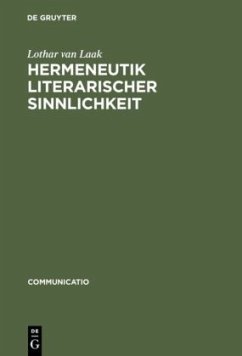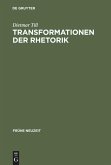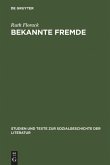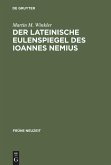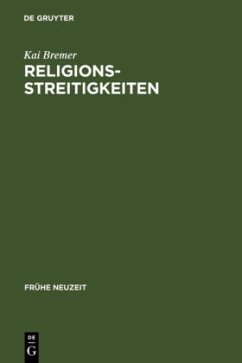This comparative study places literary meditation on death in the context of the emergence of a 'meditative concept of conscience' in the early modern age. On the basis of an extensive corpus of German, French, and English sources, meditatio mortis is scrutinized for its potential in the individualization of memory. The study concentrates on the literary and poetological consequences of meditation for the textual structure. The most prominent characteristic of this is the high degree of self-reflection and the significance of the anatomical perspective, both of which leave their mark on the self-contemplation of the meditative self.
Mit der Frage nach Formen und Funktionen der literarischen Todesmeditation bewegt sich die komparatistisch ausgerichtete Studie im Rahmen einer thematischen Untergruppe der religiösen Meditation, die zunächst nur mit dem allgegenwärtigen Topos der Vergänglichkeit von Interesse zu sein scheint. Sie stellt jedoch die Betrachtungen des Todes bzw. die Bildlichkeit des Todes in der Meditation in ihren Zusammenhang mit der frühneuzeitlichen Herausbildung eines "meditativen" Gewissenskonzeptes, um deren Potential zur Individualisierung von Erinnerung zu zeigen. Das meditierende Ich findet hier jenseits des Vanitas- und Memento-mori-Topos ein Strukturmodell für Selbsterinnerung, das subjektiv-individuelle und rollenhaft-exemplarische Selbstthematisierung verschränkt. Das Konzept des "meditativen Gewissens" ist als verinnerlichter Anspruch an sich selbst zu beschreiben. Dieser führt dazu, daß Sünde als Selbstentfremdung empfunden und in den Bildern von Tod, Verfall und Verwesung als "körperliche" Selbstentfremdung thematisiert wird. Auf der Basis eines umfangreichen deutsch-, französisch- und englischsprachigen Quellencorpus wird so das Potential der meditatio mortis für die Individualisierung von Erinnerung untersucht. Die Arbeit zielt insbesondere auf die literarisch-poetologischen Konsequenzen, die die Meditation als Textstruktur impliziert: Charakteristisch ist vor allem das hohe Maß an Selbstreflexivität und die Bedeutung der anatomischen Perspektive, die die Selbstbetrachtung des meditierenden Ich prägen.
Mit der Frage nach Formen und Funktionen der literarischen Todesmeditation bewegt sich die komparatistisch ausgerichtete Studie im Rahmen einer thematischen Untergruppe der religiösen Meditation, die zunächst nur mit dem allgegenwärtigen Topos der Vergänglichkeit von Interesse zu sein scheint. Sie stellt jedoch die Betrachtungen des Todes bzw. die Bildlichkeit des Todes in der Meditation in ihren Zusammenhang mit der frühneuzeitlichen Herausbildung eines "meditativen" Gewissenskonzeptes, um deren Potential zur Individualisierung von Erinnerung zu zeigen. Das meditierende Ich findet hier jenseits des Vanitas- und Memento-mori-Topos ein Strukturmodell für Selbsterinnerung, das subjektiv-individuelle und rollenhaft-exemplarische Selbstthematisierung verschränkt. Das Konzept des "meditativen Gewissens" ist als verinnerlichter Anspruch an sich selbst zu beschreiben. Dieser führt dazu, daß Sünde als Selbstentfremdung empfunden und in den Bildern von Tod, Verfall und Verwesung als "körperliche" Selbstentfremdung thematisiert wird. Auf der Basis eines umfangreichen deutsch-, französisch- und englischsprachigen Quellencorpus wird so das Potential der meditatio mortis für die Individualisierung von Erinnerung untersucht. Die Arbeit zielt insbesondere auf die literarisch-poetologischen Konsequenzen, die die Meditation als Textstruktur impliziert: Charakteristisch ist vor allem das hohe Maß an Selbstreflexivität und die Bedeutung der anatomischen Perspektive, die die Selbstbetrachtung des meditierenden Ich prägen.



